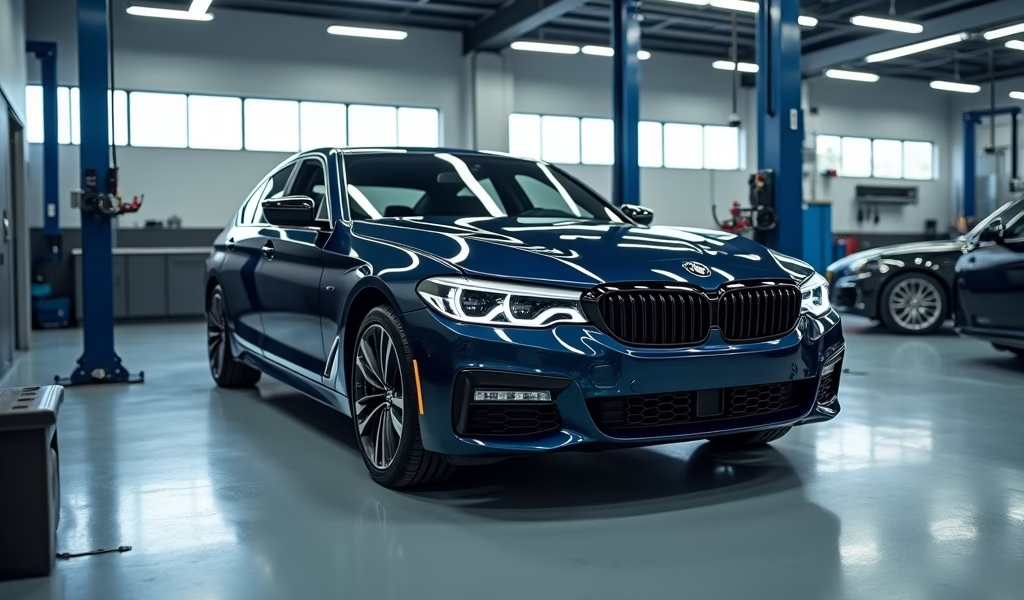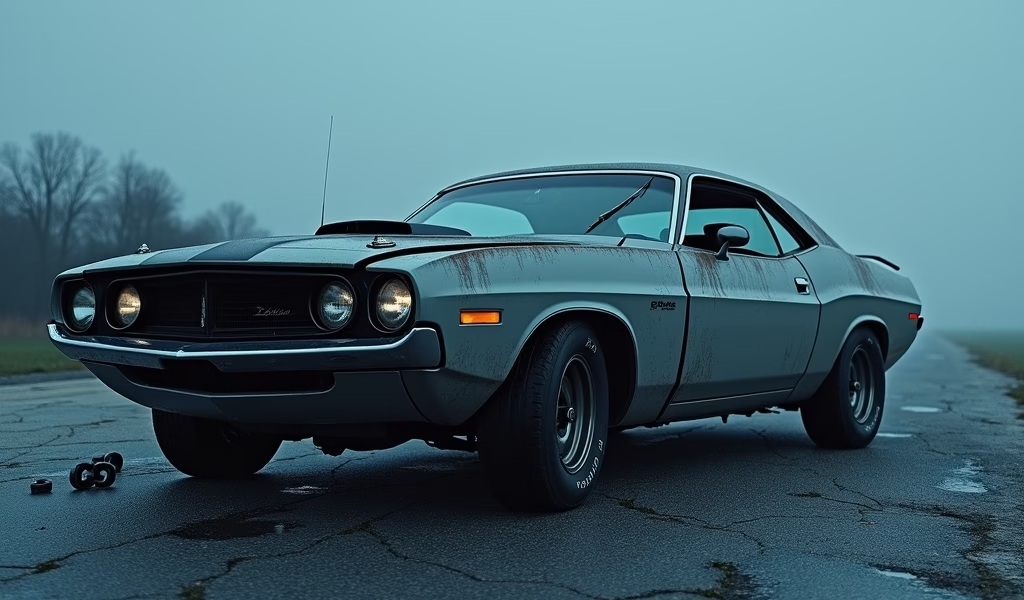Overview
This article explores the best places to buy cars based on different buyer needs, comparing traditional dealerships, online retailers, private sales, auctions, and buying services, while providing essential timing and financing strategies. Written by a master mechanic with 20 years of experience, it offers practical advice on navigating each purchase option, emphasizing that the ideal buying method depends on individual priorities regarding convenience, price, and risk tolerance.
Table of Contents
- Introduction
- Traditional Dealerships
- Online Car Retailers
- Private Party Sales
- Car Auctions
- Car Buying Services and Brokers
- Timing Your Purchase
- Financing Options
- Best Options for Different Buyers
- Essential Research Tools
- Conclusion
- Frequently Asked Questions
Introduction
After 20 years as a master mechanic, I’ve seen thousands of vehicles roll through my shop with stories that began at purchase. Where you buy your car matters almost as much as what you buy. The right purchase location can mean the difference between years of automotive bliss and a recurring nightmare of repairs and regrets.
Finding the best place to buy a car isn’t one-size-fits-all. Your ideal source depends on your budget, mechanical knowledge, risk tolerance, and even your personality. Some folks thrive on the haggling at traditional dealerships, while others prefer the straightforward pricing of online retailers.
In this guide, I’ll walk you through all your options with the insider knowledge I’ve gathered from two decades under the hood and helping customers navigate their car buying journeys. We’ll explore traditional dealerships, online platforms, private sales, auctions, and specialized buying services—each with their unique advantages and potential pitfalls.
Traditional Dealerships

Dealerships remain the most common place to purchase vehicles, and for good reason. They offer convenience, selection, and services that other options can’t match.
New Car Dealerships
New car dealerships provide factory-fresh vehicles with full warranties and the latest technology. You’ll find manufacturer-trained staff who understand the vehicles inside and out. The buying experience typically includes access to multiple financing options, trade-in services, and often maintenance packages.
The major advantage here is peace of mind. You’re getting a vehicle with zero history, full factory warranty coverage, and sometimes complimentary maintenance. Many dealers also offer certified technicians who specialize in your specific make.
The downside? That new car premium. The moment you drive off the lot, your vehicle loses 10-20% of its value. Dealership overhead also means higher prices compared to private sales or online retailers.
Used Car Dealerships
Used car dealerships range from franchise operations connected to major manufacturers to independent lots. These businesses specialize in pre-owned vehicles and often provide limited warranties and financing options.
The benefit of choosing a reputable used car dealer is getting a vehicle that’s been inspected and possibly reconditioned before sale. Many dealerships perform multi-point inspections and handle necessary repairs before listing vehicles for sale. They also typically handle all the paperwork hassles of title transfer and registration.
However, pricing at used car dealerships usually includes a significant markup over private party values. This markup covers their overhead, inspections, reconditioning, and profit margin. You’re essentially paying for convenience and some level of quality assurance.
Certified Pre-Owned Programs
Certified Pre-Owned (CPO) programs represent the middle ground between new and used. These manufacturer-backed programs take late-model, low-mileage used cars through rigorous inspection processes before offering extended warranties.
CPO vehicles typically cost more than standard used cars but less than new models. The premium buys you additional warranty coverage and the assurance that the vehicle has passed a comprehensive inspection (usually covering 100+ points). According to J.D. Power’s research, CPO vehicles often have higher customer satisfaction ratings than standard used cars.
For buyers seeking reliability without the new-car depreciation hit, CPO programs offer an excellent compromise. They’re especially valuable for luxury brands where repair costs can be substantial.
Online Car Retailers
The digital revolution has transformed car buying with platforms that deliver vehicles directly to your driveway. These online retailers have eliminated much of the traditional dealership experience in favor of a streamlined, haggle-free process.
Major Online Platforms
Companies like Carvana, Vroom, and CarMax have revolutionized the car buying experience. Each offers slightly different approaches, but all focus on convenience, transparent pricing, and a pressure-free experience.
These platforms typically provide extensive photos, detailed vehicle histories, and fixed pricing. The shopping experience happens entirely online, with financing, trade-ins, and delivery arranged through user-friendly interfaces.
Most online retailers offer return periods ranging from 7-30 days, effectively replacing the traditional test drive with a “test ownership” period. This approach eliminates the pressure of making a decision after a 15-minute drive around the block.
Benefits of No-Haggle Pricing
One of the most appealing aspects of online car retailers is their transparent, fixed pricing model. The price you see is the price you pay, without the back-and-forth negotiation many find stressful at traditional dealerships.
This approach creates price consistency—you’re paying the same as everyone else for an equivalent vehicle. For buyers who dislike negotiation or worry about getting taken advantage of, this transparency provides peace of mind.
The trade-off is that these prices typically fall somewhere between private party and traditional dealership prices. You might pay slightly more than you could negotiate at a dealership if you’re a skilled haggler, but you’ll likely pay less than the sticker price at most traditional dealers.
Convenience Factors
The convenience of online car buying can’t be overstated. You can browse thousands of vehicles from your couch, compare options side-by-side, and complete the entire purchase process without setting foot on a car lot.
Most online retailers offer home delivery—they’ll bring the vehicle to your driveway for a test drive or final delivery. Some even handle trade-ins by picking up your old vehicle while delivering your new one. Many buyers find this convenience worth any small premium they might pay over private party prices.
The modern car buying experience through these platforms also eliminates the traditional dealership time sink. No more spending an entire Saturday at the dealership or making multiple visits to different lots.
Private Party Sales
Buying directly from another individual often represents the best value in car buying, but it comes with greater responsibility and some additional risks. These person-to-person transactions eliminate the middleman and their associated markup.
Finding Quality Private Sellers
Private sellers advertise through various channels, including Craigslist, Facebook Marketplace, OfferUp, and traditional classified ads. Finding quality listings requires patience and a discerning eye.
Look for detailed advertisements with multiple clear photos and thorough descriptions. The best private sellers typically provide maintenance records, honest descriptions of any issues, and reasonable pricing based on market research. They’re also willing to meet at safe, public locations and accommodate a pre-purchase inspection.
Red flags include sellers who seem evasive about the vehicle’s history, pressure you to make a quick decision, or resist reasonable requests like allowing a mechanic to examine the vehicle.
Price Advantages
The most compelling reason to buy privately is price. Without dealer overhead and profit margins, private party prices typically run 10-15% below retail values. On a $15,000 vehicle, that’s a $1,500-2,250 savings—enough to cover registration, taxes, and initial maintenance.
You’ll often find well-maintained vehicles from owners who have detailed service records and can tell you every quirk and feature of their car. Some of my shop’s best-maintained vehicles came from private sellers who treated their cars like members of the family.
Safety Considerations
Private party transactions require additional safety precautions. Always meet in public locations like police station parking lots (many have designated “safe exchange zones”), shopping center parking lots, or bank parking lots. Bring a friend to appointments, and conduct transactions during daylight hours.
For payment, cash is still king for smaller transactions, but for larger amounts, cashier’s checks or money orders offer better security. Never wire money or use payment apps with strangers, and always get a bill of sale that includes both parties’ information, the vehicle details, purchase price, and date.
Pre-Purchase Inspections
When buying privately, a professional pre-purchase inspection becomes essential rather than optional. This $100-200 investment can save you thousands in unexpected repairs.
Ask to take the vehicle to your mechanic (or arrange for a mobile inspection service). A comprehensive inspection should include:
- Engine and transmission performance testing
- Suspension and steering component inspection
- Electrical system testing
- Body and frame inspection
- Computer diagnostic scan for trouble codes
I’ve saved countless clients from purchasing vehicles with hidden problems that would have cost more than the car’s value to repair. One customer nearly bought a seemingly pristine SUV until our inspection revealed evidence of previous flood damage that had been carefully concealed.
Car Auctions

For the adventurous buyer, auctions offer potential for significant savings, but they also come with the highest level of risk. These fast-paced environments sell vehicles from various sources, including government fleets, repossessions, insurance claims, and dealer trade-ins.
Types of Auctions
Public auctions are open to everyone and typically feature former rental cars, government vehicles, and fleet vehicles. These events offer vehicles across a wide price range, from economy models to luxury vehicles.
Online auctions have expanded access to auction vehicles nationwide. Sites like eBay Motors, Cars & Bids, and Copart allow you to bid from home, although many still require in-person pickup of vehicles.
Government auctions sell surplus vehicles from federal, state, and local agencies. These vehicles are often well-maintained but high-mileage, with detailed service records available.
Dealer auctions were traditionally restricted to licensed dealers, but some now offer public access through third-party programs. These wholesale events feature trade-ins and aged inventory from dealership lots.
Potential Savings
Auction vehicles often sell for wholesale prices or below, representing savings of 20-40% compared to retail. For mechanically inclined buyers or those with trusted repair shops, these savings can offset the cost of addressing any issues the vehicle might have.
The competitive bidding process sometimes creates opportunities where vehicles sell well below market value, especially during slow periods or bad weather when attendance is lower.
Understanding the Risks
The auction environment epitomizes “buyer beware.” Most auction vehicles sell as-is with no warranty or recourse if problems emerge. Inspection time is often limited to visual examinations and sometimes a brief engine start—you typically can’t test drive or perform detailed diagnostics.
The fast pace of auctions can lead to emotional bidding and exceeding your predetermined budget. Setting firm limits before the auction begins is essential to avoiding costly impulse purchases.
According to the Consumer Reports buying guide, auction purchases are best suited for experienced buyers with mechanical knowledge or access to affordable repair options.
Car Buying Services and Brokers
Car buying services and brokers represent a middle path that combines convenience with potential savings. These professionals leverage their industry knowledge and connections to navigate the car buying process on your behalf.
How Buying Services Work
Auto brokers work as your personal car shopping experts. After discussing your needs and preferences, they locate suitable vehicles, negotiate prices, arrange financing if needed, and sometimes even deliver the vehicle to you.
Most services charge either flat fees or percentage-based commissions. Flat fees typically range from $400-1,200 depending on the service level, while percentage-based fees usually run 1-2% of the vehicle’s purchase price.
Some services maintain relationships with multiple dealerships, while others operate independently. Understanding their business model helps you evaluate potential conflicts of interest in their recommendations.
Benefits for Busy Professionals
The primary advantage of buying services is time savings. These services eliminate the need to visit multiple dealerships, handle negotiations, or manage paperwork. For busy professionals, the time saved often outweighs the service fee.
Many brokers also deliver better pricing outcomes than most buyers could achieve on their own, thanks to their market knowledge and negotiation experience. They understand dealer cost structures, current incentives, and regional pricing variations.
When to Consider a Broker
Consider a broker or buying service when:
- Your time is extremely limited
- You dislike negotiation or car shopping
- You’re purchasing a rare or specialized vehicle
- You’re relocating and need to purchase remotely
- You want protection from common dealership sales tactics
These services are particularly valuable for luxury or specialty vehicle purchases, where market knowledge and connections can make a substantial difference in both price and finding the exact specification you want.
Timing Your Purchase
When you buy can be almost as important as where you buy. Strategic timing can save you hundreds or even thousands on your purchase, regardless of which buying method you choose.
Seasonal Considerations
Car buying follows predictable seasonal patterns that create opportunities for savings. December consistently ranks as the best month for discounts, with dealerships pushing to meet year-end sales targets. End-of-summer clearance events (August-September) offer significant discounts as dealers clear out current model year inventory to make room for new arrivals.
Weather patterns also influence prices. Convertibles often sell for less during winter months, while 4WD and AWD vehicles command premium prices during snowy seasons. In regions with extreme seasons, shopping counter-cyclically can yield better values.
Model Year Transitions
When manufacturers release new model years (typically late summer through fall), the outgoing models often see price reductions of 10-15% or more. These vehicles represent excellent value, offering nearly identical features to the newer models at substantially reduced prices.
For budget-conscious buyers willing to forgo the latest design updates, these transition periods create some of the best buying opportunities of the year. Dealerships face pressure to clear older inventory, and manufacturers often offer additional incentives during these periods.
End-of-Month Opportunities
Dealerships operate on monthly sales targets that affect salesperson commissions and manufacturer incentives. Shopping during the last few days of the month often gives you leverage as salespeople and managers push to hit these targets.
This effect amplifies at the end of quarters (March, June, September, December), when higher-level bonuses may be at stake. A dealership that’s just a few units short of a significant bonus tier may be willing to make deals that would be unthinkable earlier in the month.
Financing Options
Your financing source can dramatically impact your total cost of ownership. Understanding all available options helps ensure you’re not overpaying for financing, regardless of where you purchase.
Credit Unions and Banks
Credit unions typically offer the most competitive auto loan rates, often 1-2 percentage points below dealership financing. These member-owned institutions prioritize customer service over profit maximization. Many credit unions also offer pre-approval, which strengthens your negotiating position when car shopping.
Traditional banks provide another option, with rates usually falling between credit unions and dealership financing. Online banks sometimes offer aggressive rates to build their auto loan portfolios, making them worth investigating during your research phase.
Dealership Financing
Dealership financing offers convenience but requires careful scrutiny. Dealers work with multiple lenders and can sometimes access special manufacturer-subsidized rates (especially for new vehicles). These captive finance companies occasionally offer zero or very low-interest financing as incentives.
However, dealer financing often includes markup on the interest rate (known as “reserve” in the industry). This markup compensates the dealership for arranging the loan and can add significant cost over the loan term. Always compare the offered rate with pre-approvals from external lenders.
Cash vs. Financing Considerations
While paying cash eliminates interest costs, it’s not always the optimal strategy. When manufacturers offer subsidized low or zero-percent financing, the math often favors financing even if you have cash available.
Additionally, some dealerships earn significant revenue from financing and may be less willing to discount the vehicle price for cash buyers. In today’s low-interest environment, keeping your cash liquid and financing at a competitive rate often makes more financial sense.
Best Options for Different Buyers
Different buyers have different needs, and the best place to buy varies accordingly. Let’s look at recommendations for specific buyer categories.
First-Time Buyers
First-time buyers often benefit most from dealership purchases, particularly CPO vehicles that offer warranty protection and reduced risk. The structured buying process and financing assistance can help newcomers navigate what might otherwise be an overwhelming experience.
Online retailers with strong return policies provide another good option, allowing extended test periods to ensure the vehicle meets expectations. These platforms also typically offer transparent pricing that helps prevent first-timers from overpaying.
Budget-Conscious Buyers
Buyers prioritizing value should focus on private party purchases, which typically offer the lowest prices. This approach requires more work and assumes more risk but can save thousands compared to retail channels.
Government auctions represent another excellent option for budget buyers, as these vehicles often have detailed maintenance records and sell for wholesale prices. Fleet vehicles may have high mileage but usually receive consistent, scheduled maintenance.
For those seeking a middle ground, finding the best used car source often means exploring online retailers like CarMax or Carvana, which offer reasonable prices with significantly reduced risk compared to private sales.
Luxury Vehicle Buyers
Luxury vehicle buyers typically find best value in either specialized brokers who understand the premium market or certified pre-owned programs that address the steeper depreciation curve of high-end vehicles.
CPO programs for luxury brands offer particularly good value, providing near-new vehicles with comprehensive warranty coverage at significantly reduced prices. The manufacturer certification process helps ensure these vehicles meet the high expectations associated with premium brands.
Essential Research Tools
Regardless of where you buy, thorough research remains your best protection against overpaying or purchasing problematic vehicles. Today’s car buyers have access to powerful tools that provide unprecedented transparency.
Vehicle History Reports
Services like CARFAX and AutoCheck compile vehicle histories from thousands of sources, revealing accidents, title problems, service records, and ownership changes. While not exhaustive, these reports provide critical insights about a vehicle’s past.
Always run the VIN through a history report service before purchasing any used vehicle. The $25-40 cost represents cheap insurance against potential disasters. Some dealers and online retailers provide these reports for free, but for private party purchases, this expense falls to you.
Valuation Services
Kelley Blue Book, NADA Guides, and Edmunds offer valuation tools that help you understand fair pricing based on condition, mileage, options, and regional factors. These services typically provide private party, trade-in, and retail values to establish reasonable price ranges.
Use multiple valuation services for the most accurate picture, as methodologies differ slightly between providers. Pay careful attention to condition definitions, as most sellers overestimate their vehicle’s condition when pricing.
Consumer Reviews and Reliability Data
Before focusing on specific vehicles, research model reliability through sources like Consumer Reports and J.D. Power. These organizations collect data from thousands of vehicle owners to identify common problems and satisfaction levels.
Model-specific forums and owner groups provide another valuable resource, offering real-world experiences from current owners. These communities often document common issues, maintenance requirements, and ownership costs that formal reviews might miss.
Conclusion
After two decades helping customers maintain vehicles purchased from every conceivable source, I’ve seen firsthand that there’s no one-size-fits-all answer to where you should buy your next car. The best place depends on your priorities, knowledge level, and comfort with risk.
For maximum peace of mind with strong warranty protection, certified pre-owned programs from reputable dealers offer hard-to-beat combinations of quality and value. For the absolute lowest prices with highest potential savings, private party purchases remain unmatched—if you do your homework and get a pre-purchase inspection.
Online retailers have revolutionized car buying by emphasizing convenience and transparency, creating a middle path that many buyers find ideal. Their return policies and inspection processes reduce risk compared to private sales, while their streamlined operations offer better pricing than traditional dealerships.
Regardless of which path you choose, thorough research, pre-purchase inspections, and careful timing will serve you well. Remember that where you buy affects not just your initial purchase experience, but potentially years of ownership ahead.
The perfect vehicle at the wrong price isn’t a good deal, and neither is the perfect price on a problematic vehicle. The best car buying experiences balance value, risk, and convenience in ways that align with your individual priorities.
Frequently Asked Questions
What’s the best time of year to buy a car for maximum savings?
December typically offers the best deals as dealerships push to meet year-end quotas. Late summer/early fall is another good time as dealers clear out current model year inventory for new arrivals.
Should I buy from a private seller or a dealership?
Private sellers typically offer lower prices but higher risk with no warranties or return policies. Dealerships charge more but provide warranties, financing options, and legal protections that may justify the premium for many buyers.
Are online car retailers like Carvana and CarMax good places to buy?
Online retailers offer convenience, transparent pricing, and generous return policies that many buyers find appealing. Their prices typically fall between private party and traditional dealership prices, making them a good middle-ground option.
How much can I save by buying at auction?
Auction vehicles often sell for 20-40% below retail prices, but come with higher risk as most sell as-is with limited inspection opportunities. These savings make the most sense for buyers with mechanical knowledge or access to affordable repairs.
Is it worth paying for a pre-purchase inspection?
A professional pre-purchase inspection typically costs $100-200 and can save you thousands by identifying hidden problems. This investment is essential when buying privately and still valuable even with dealer purchases.


Pingback: Car Store USA: 5 Proven Car Care Hacks - knowsyourcar.com